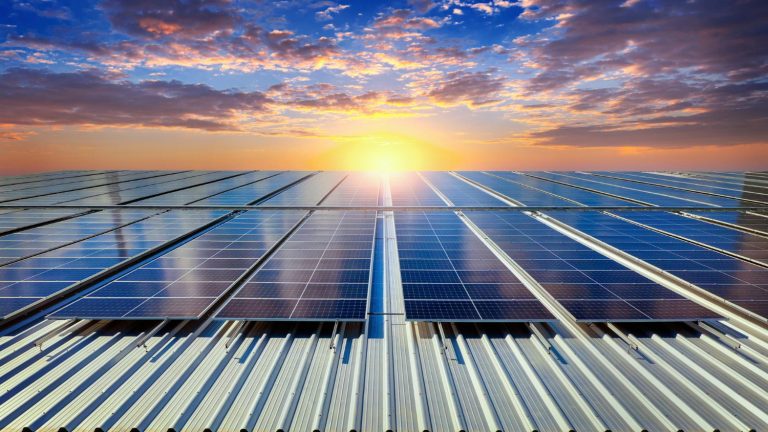Solar panels have become a prominent feature in the renewable energy landscape, harnessing the power of the sun to generate clean and sustainable electricity. As homeowners and businesses increasingly invest in solar energy solutions, understanding the lifespan of a solar panel is essential. Solar panels are a significant financial and environmental investment, and knowing how long they can reliably produce electricity is crucial for planning and decision-making. We will explore the lifespan of a solar panel, the factors that influence it, and considerations for maximizing the longevity and performance of these photovoltaic marvels.
Defining the Solar Panel Lifespan
The lifespan of a solar panel ushers to the duration during which it can efficiently and reliably generate electricity. Solar panels are designed to withstand a wide range of environmental conditions, and their longevity is a key factor in determining their overall value and impact on reducing greenhouse gas emissions.
Signs that solar panels have completed their lifespan
1. Manufacturer Warranty
Most solar panels have a manufacturer warranty that guarantees their performance for a specified period, generally 20 to 25 years. This warranty ensures the panels will beget electricity at a certain efficiency level during the covered period. Manufacturers have confidence in the durability of their products, and the warranty serves as a testament to the expected lifespan of solar panels.
2. Performance Degradation
While solar panels have extended lifespans, they are not immune to performance degradation over time. This degradation is a natural process that occurs as solar cells are exposed to sunlight and environmental factors. The degradation rate deviates depending on diverse factors, including the panel’s quality, the technology used, and the local climate. On average, solar panels experience an annual degradation rate of about 0.5% to 1%. This means that after 25 years, a solar panel should still produce at least 75% to 87.5% of its original rated capacity. High-quality panels may have even lower degradation rates, ensuring more extended service life.
3. Factors Affecting Lifespan
Several factors influence the lifespan of a solar panel, including:
- Quality of Materials: The quality of materials utilized in manufacturing plays a paramount role in panel longevity. High-quality solar cells, encapsulation materials, and frames are more durable and resistant to wear and tear.
- Environmental Conditions: The local climate and environmental requirements, such as temperature, humidity, and pollution levels, influence a solar panel’s lifespan. Extreme weather events like hailstorms or hurricanes can also influence panel integrity.
- Maintenance and Cleaning: Regular maintenance, including cleaning and inspections, can extend a panel’s lifespan. Removing panels from dirt, debris, and shading improves their efficiency and longevity.
- Quality of Installation: Proper installation ensures that solar panels are securely mounted and connected. A well-installed system is less likely to suffer from problems that can shorten its lifespan.
4. Long-Term Sustainability
Solar panels are designed to withstand the test of time, but ongoing technological advancements continually improve their efficiency and durability. As the solar industry evolves, new materials, coatings, and manufacturing techniques are developed to enhance the long-term sustainability of solar panels.
5. End-of-Life Considerations
While solar panels have extended lifespans, they eventually end their operational life. Responsible end-of-life management is essential to ensure that decommissioned panels are disposed of or recycled in an environmentally friendly manner. Recycling programs for solar panels are evolving to recover valuable materials and reduce waste.
6. Energy Storage Solutions
Energy storage systems, such as batteries, can complement solar panels by storing excess energy generated during the day for use at night or power outages. These systems can help maximize self-consumption and reduce the strain on solar panels, potentially unfolding their lifespan by decreasing the daily workload.
7. Policy and Incentives
Government policies and incentives can influence the decision to invest in solar panels. Many regions offer solar energy adoption incentives, including tax credits and rebates. Comprehending the local regulatory environment can impact the financial aspect of your solar panel investment and influence your decision on whether to go solar.
The lifespan of a solar panel is a critical consideration for homeowners, businesses, and policymakers alike. Solar panels are designed to be durable and reliable, with most manufacturers providing two to three decades of warranties. While performance degradation is a natural process, it occurs relatively slowly, permitting solar panels to generate clean and renewable electricity for many years. Factors influencing panel longevity include the quality of materials, manufacturing standards, environmental conditions, maintenance, and installation quality. If you are skimming for MA solar costs – EcoGen America has a lot of information. Understanding the lifespan of a solar panel is fundamental to making informed decisions about adopting solar energy. Solar panels are not only an investment in clean and renewable electricity but also a contribution to reducing greenhouse gas emissions and advancing a more sustainable energy future.

